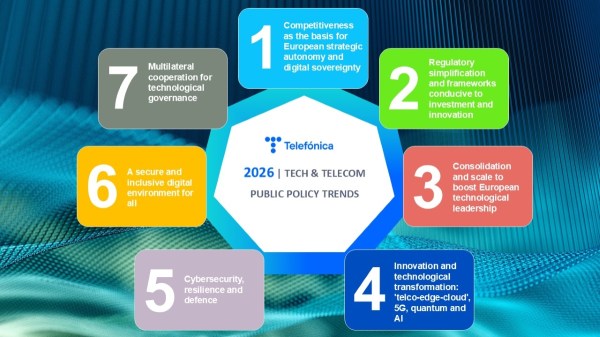The metaverse, or the virtual worlds to use a broader terminology, will be part of our lives in the not too distant future. Practically everything of our lives will be linked to virtual worlds in one way or another, affecting people and companies, as virtual worlds will be an intrinsic part of all production and service sectors. Therefore, and following the conclusions of the Commission to the European Parliament on 11 July 2023, the European Commission launched a consultation to identify the potential competition problems that already exist or may arise in the future.
Telefónica agrees with the European Commission on the importance of ensuring that virtual worlds are a space where fundamental European values of fair competition prevail, avoiding situations of abuse of market power such as those that have occurred on the Internet today.
The importance of ensuring free competition in virtual worlds
In general, virtual worlds are still in the early stages of development. We do not yet know which new services and actors will thrive in this new ecosystem, nor can we even anticipate the value chain. It is therefore too early to assess what kind of barriers will emerge or materialise in the development of virtual worlds, and equally it would be desirable to allow the process of market discovery to unfold unhindered.
However, it is clear that there will be a limited number of platforms on which virtual worlds will run. Similarly, it seems likely that there will be a limited number of devices available to access immersive experiences, especially those that require high image processing power.
The main concern is therefore to avoid the transfer of the market power that currently exists on the Internet to this new environment. We will have to pay attention to the conditions of access to app stores, their business models, the interoperability of devices with platforms and the vertical integration in the value chain.
In addition, virtual worlds will have a very important productivity aspect for the industrial sector thanks to virtual twins, which will make it possible to optimise production processes through innovation by specialised companies. Europe must ensure that this new sector, which is largely crowed by small and medium-sized enterprises, can develop without regulatory interference, as the development of these companies is essential for European competitiveness.
The crucial role of telecommunications networks in the future of virtual worlds
Finally, it is important to highlight that for virtual worlds, both consumer and even more industrial sector, telecommunications networks will have to guarantee qualities of service in terms of connectivity that cannot currently be provided in all traffic situations, so that it will be necessary to rethink the rules that were defined for an Internet of two decades ago.
We will need flexible and programmable networks that will allow developers of services in these virtual worlds to interact with them through APIs and take advantage of the capabilities that next generation telecommunications networks can offer.
An exciting future
Virtual worlds promise an exciting future in any area of our lives. We must therefore allow the development of these worlds to be guided by the innovative ideas that developers can conceive, using all the technical tools at their disposal, without artificial barriers, be they regulations designed for other environments or abusive business models.







